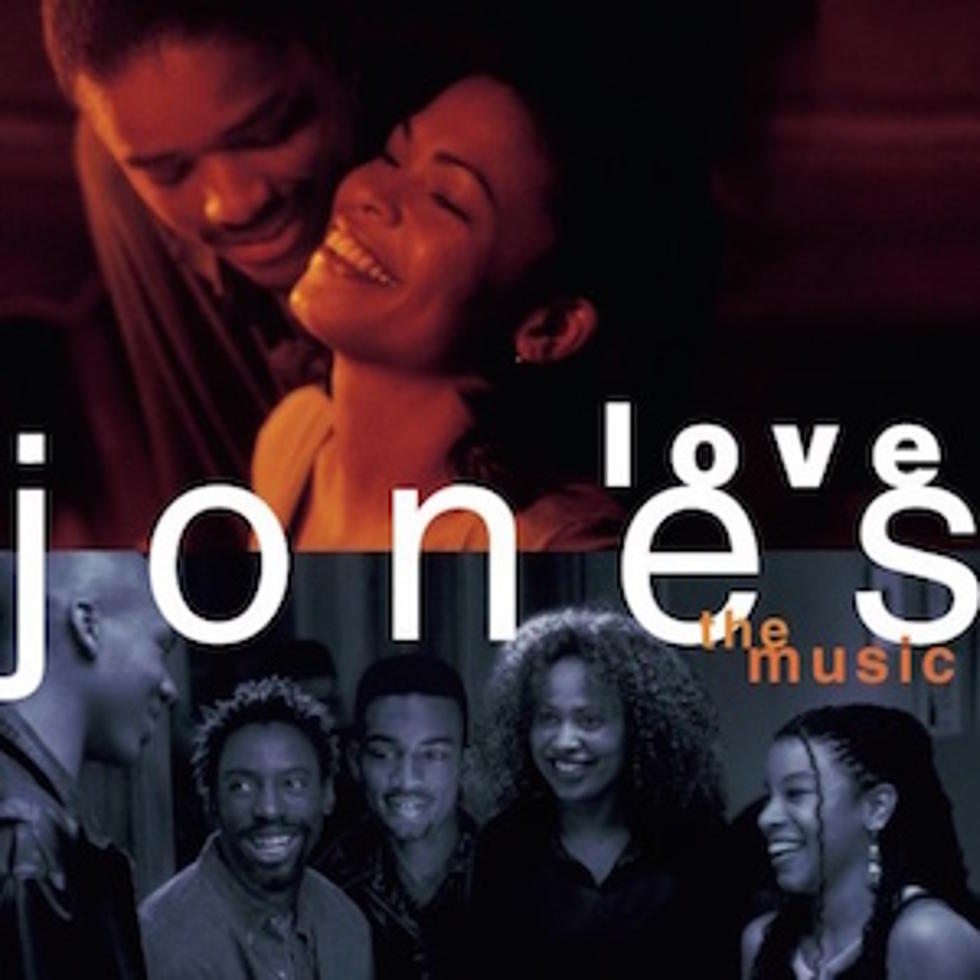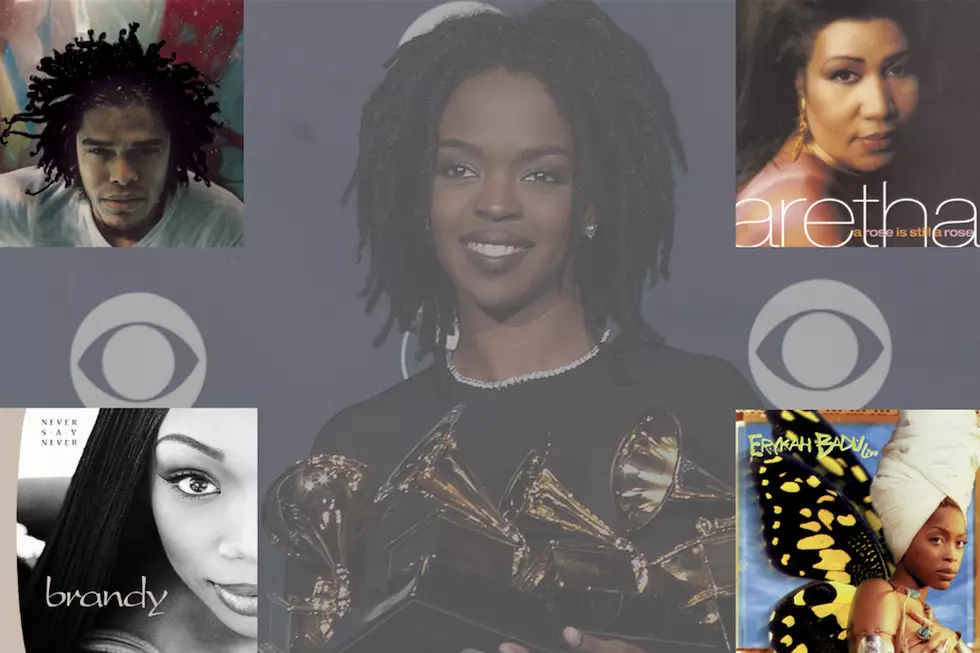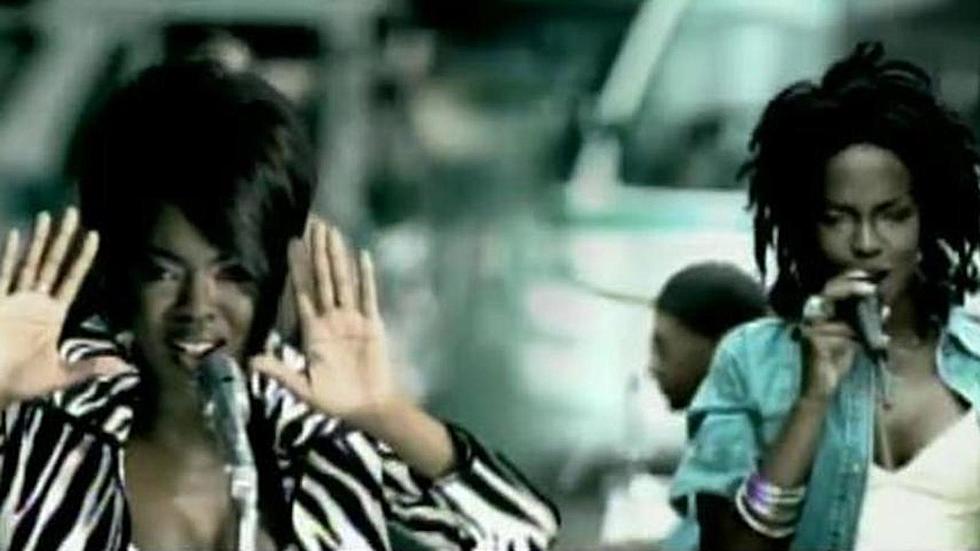
The Timeless Beauty of the ‘Love Jones’ Soundtrack
There isn't a contemporary Black romance more beloved than Love Jones. It's widely-hailed for its star-crossed central characters, hip and urbane backdrop and the smoky romance of its spoken word cafes and chic Chicago lofts. But the heart and soul of the movie lies in its undeniable music. Where so many Black films of the time had been inextricably connected to rap music or at the very least hip-hop-influenced R&B by artists like SWV, Dru Hill and Aaliyah, Love Jones took a different musical approach entirely--and in doing so, it stood apart from the litany of platinum-selling soundtracks from the 1990s.
1997 was an interesting time in Black music. Hip-hop was enthralled in waning East Coast/West Coast feuding and was reeling from the loss of the Notorious B.I.G. Biggie's murder would kick-start the so-called "shiny suit era," as the rap game reacted to the previous year's fatalism with pop-friendly hits by acts like Will Smith and Ma$e--the kind of fare that would dominate the airwaves in the months following the Biggie and Tupac Shakur murders (Shakur had been killed in Las Vegas six months prior.) But as hip-hop aimed for pop appeal, mainstream R&B was undergoing its own metamorphosis as soul was once again entering the popular lexicon.
Debut albums by artists like Maxwell and D'Angelo had announced a shift in popular urban music; with their devotion to the image and approach of classic soul singer-songwriters and connection to Native Tongues-esque hip-hop "artsiness," these acts had affirmed that there was an audience begging for both musical sincerity and a certain cultural presentation. In February 1997, Erykah Badu released her debut album Baduizm, and it's success only added to the wave that was starting to push R&B into a different direction.
Into that heady mix, there came an unassuming romantic drama about a pair of conflicted lovers in Chicago. Starring Larenz Tate and Nia Long as young Black professionals struggling to find themselves and come to grips with the difficulties of love and relationships, Love Jones wasn't a major hit at the box office, but it immediately became a go-to date movie for Black people who saw themselves in Nina and Darius; and it's boho aesthetic became a signifier for a generation that was coming of age at the end of the millennium. Nowhere was that more evident than in the movie's music.
Most wouldn't expect a song called "Hopeless" to be the most upbeat track on the album, but this midtempo groover from Dionne Farris opens the Love Jones soundtrack (and the movie itself) in perfect fashion. It sounds like music for a rainy Saturday, but never feels melancholy. And it perfectly segues into Lauryn Hill's classic "The Sweetest Thing." Billed as "The Refugee Camp All-Stars featuring Lauryn Hill," the song is one of the most sublime in Wyclef Jean's production repertoire, and it represents one of the last moments of musical chemistry between Hill and Jean before the deterioration of the Fugees.
Another standout in the compilation is Maxwell's "Mellosmoothe" version of his hit single "Sumthin Sumthin." As indicated by it's title, it's a breezier take on the original, but lives entirely on it's own, thanks to it's smooth-as-satin production and Maxwell's reliably seductive vocal. Groove Theory's "Never Enough" was good enough to have been a single, and sits alongside their underrated eponymous 1995 album. A pair of stellar covers from Xscape (who tackle the Dramatics' classic "In the Rain") and Trina Broussard (with a more-than-respectable take on Minnie Riperton's "Inside My Love") anchor the most seductive stretch on the soundtrack. This is an album for late night conversations and steamy seduction, and it never sags in the middle.
"You Move Me" with its thumping bassline and Cassandra Wilson's dusky vocal performance, is one of the best moments here. And Meshell Ndegeocello finally brings the sexy vibe to a near peak with "Rush Over," a Marcus Miller ode to late night rendezvous that never sounds tawdry or trivial.
The Brand New Heavies inject a little levity into the proceedings with "I Like It," the kind of jam they can do better than almost anyone. It channels the feel of an intimate live performance, with handclaps and cheering, a departure from the sensual feel of most of the album. The oft-forgotten Cassie (no, not that Cassie) delivers "Girl," one of the lesser spots on the soundtrack but not at all a tossed-off moment. The fact that "Girl" isn't one of the better songs here is a testament to the uniform quality of the compilation, not indicative of mediocrity regarding the song itself. Conversely, Kenny Lattimore's "Can't Get Enough" is one of the soundtrack's more forgettable moments; a song that sounds disappointingly rote when set against so many great tracks and inspired performances.
The final two musical tracks connect Love Jones and it's sonic landscape to the eternal cool of jazz. All of the music from Love Jones sits in the spaces between neo-soul, smooth R&B and an air of reverence for classic jazz permeates both the soundtrack and the film itself. The Lincoln Center Jazz Orchestra's 1994 take on the Billy Eckstein/Earl Hines standard "Jelly, Jelly" is a jewel, and the inclusion of "In A Sentimental Mood" with Duke Ellington and John Coltrane was a masterstroke. Originally recorded in 1962, it was already a famous Ellington composition when he collaborated with legendary saxophonist Coltrane for the most gorgeous rendering of the song. Like "Jelly, Jelly," its a rare song on the album that wasn't an original recording, but its an inspired choice and serves as the apex for the entire compilation; a jazz classic that seems to sum up the feelings between Darius and Nina without a word.
The soundtrack is framed with spoken word pieces from the film; it opens with "A Blues For Nina" as read by Larenz Tate-as-Darius and closes with "Nina's Poem (I am Looking at Music)" written by Sonia Sanchez, as read by Nia Long's Nina. It's a device that doesn't add very much, but doesn't take away from the flow and feel of the album itself, which was a hit on the R&B charts when it was released in March 1997. For the better part of a year, the Love Jones soundtrack was a fixture; and it planted the musical seeds for major releases the following year, including Lauryn Hill's Miseducation of Lauryn Hill and Maxwell's sophomore album Embrya.
The success of the Love Jones soundtrack also solidified the burgeoning neo-soul movement as more than just a fad with a trendy-sounding (and hackneyed) name; this was a sound and a feel that music fans had been craving. Despite the fact that superstars like Michael Jackson, Prince and R. Kelly were singer-songwriters, there hadn't been an emphasis on singer-songwriters in popular Black music since the 1970s. For the better part of the 1990s, the charts had been dominated by either producer-driven New Jack Swing/hip-hop soul, or ballad-driven quiet storm fare by singers who often didn't write and whose songs, even the most heartfelt, weren't exactly steeped in personal experience and sincerity. That had begun to change with the emergence of D'Angelo, but this release took things a step further by not being connected to a singular face or hit. This was a compilation that proved that people wanted the sound--not just a personality they could latch onto.
It's been 20 years since the phenomenon of Love Jones spawned a generation of terrible spoken word poetry and countless more undoubtedly pretentious conversations about jazz; but even removed from the time capsule of 1997, it's a remarkable soundtrack that has held up better than most. It set a standard for "grown 'n sexy" at a time when that phrase was beginning to apply less to bedroom crooners like Keith Sweat and more to earthy singers like Raphael Saadiq. It's a collection from a wide range of producers and artists that never feels thrown together; always focused, always inspired and always sexy.
Two decades later, we're still jonesin.'
Check out the video for Lauryn Hill's "The Sweetest Thing" and some classic moments from Love Jones.
More From TheBoombox









